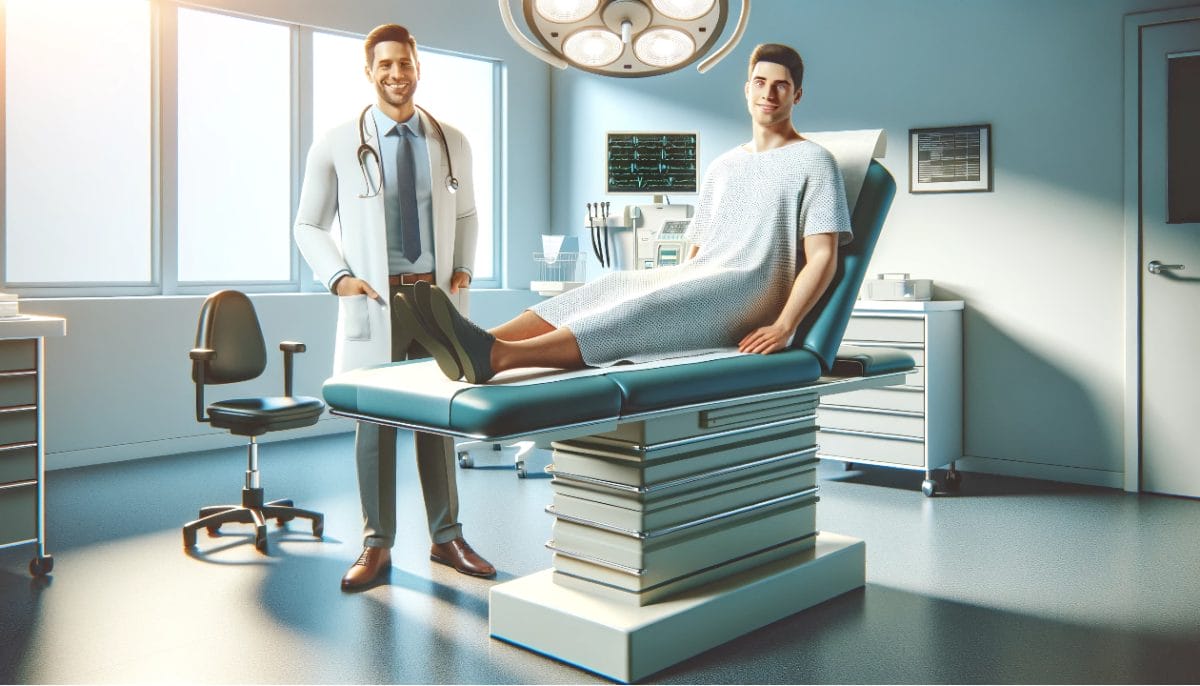The COVID-19 pandemic has significantly accelerated technological innovations in healthcare, fundamentally transforming patient care and medical practices. This article explores the integration of emerging healthcare technologies with modern medical furniture, focusing on products like Procedure Chairs, 3-Section Treatment Tables, Examination Tables, and Podiatry Chairs, and how they are evolving in response to these advancements.
Remote Patient Monitoring and Furniture Integration
Remote patient monitoring has become integral in managing chronic diseases outside traditional clinical settings. In response, medical furniture like Examination Tables and Chairs are being designed with capabilities to integrate with remote monitoring technologies. This allows for continuous patient data collection and improved preventative care, seamlessly blending in-clinic visits with remote healthcare management.
Wearable Medical Devices and Clinical Furniture
With the exponential growth of wearable medical devices, medical furniture is being adapted to interface with these devices. Procedure Chairs, for example, can be equipped with technology that syncs with wearable devices, providing continuous patient health monitoring and aiding in proactive disease management.
Telehealth and Furniture Design
The persistence of telehealth post-pandemic has influenced the design of medical furniture. Examination Tables and Podiatry Chairs are now being designed to facilitate telehealth consultations, integrating digital tools to enhance patient-clinician interactions remotely.
Patient-Focused Digital Experiences
The push towards patient engagement solutions has led to the incorporation of digital interfaces into medical furniture. Treatment Tables are equipped with integrated screens and interfaces, allowing patients to access their health information, communicate with their healthcare providers, and manage their treatment plans more effectively.
Cloud-Based Solutions and Medical Furniture
Cloud-based healthcare solutions are reshaping medical furniture design. Procedure Chairs and Examination Tables with cloud technology integration enable healthcare providers to access and manage patient data efficiently, streamlining workflows and enhancing patient care.
3D Printing in Prosthetics and Custom Medical Furniture
3D printing technology is being leveraged to customise medical furniture for individual patient needs. This technology allows for the creation of personalised components in furniture like Podiatry Chairs, enhancing comfort and effectiveness in patient care.
Genomics and Personalized Medical Furniture
The advancement in genomics and personalised medicine is influencing medical furniture design. Treatment Tables and Chairs are being tailored to support personalised treatments based on genetic data, providing a more targeted and efficient healthcare approach.
Immersive Technology for Medical Training
Immersive technology is finding its way into medical training, impacting the design of medical furniture. Procedure Chairs and Examination Tables are being developed to support immersive technology, aiding in the training of medical professionals with realistic simulations.
Artificial Intelligence in Healthcare Furniture
AI is becoming a crucial component in healthcare, influencing the design of medical furniture. AI-enabled Treatment Tables and Chairs are emerging, which can assist in diagnostics and treatment planning, enhancing the overall healthcare delivery.
The intersection of emerging healthcare technologies and medical furniture design is a testament to the continuous evolution of patient care and medical practices. The integration of advanced technologies in medical furniture like Procedure Chairs, 3-Section Treatment Tables, Examination Tables, and Podiatry Chairs is not only enhancing the efficiency of healthcare delivery but also paving the way for a more personalised and patient-centred approach in the post-COVID era.
